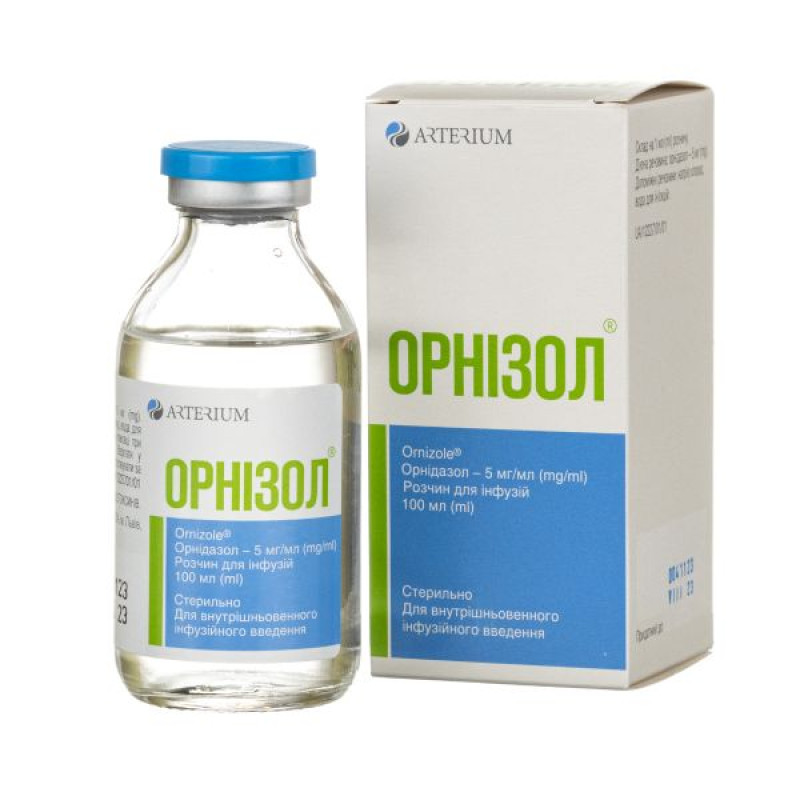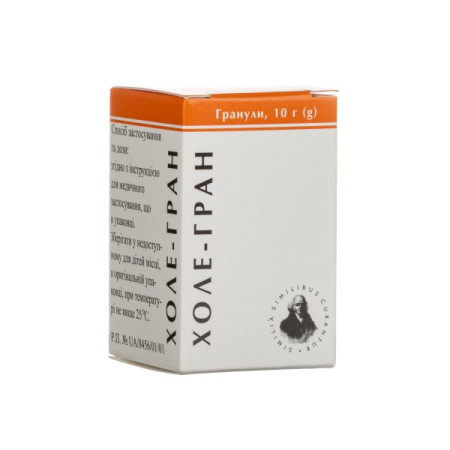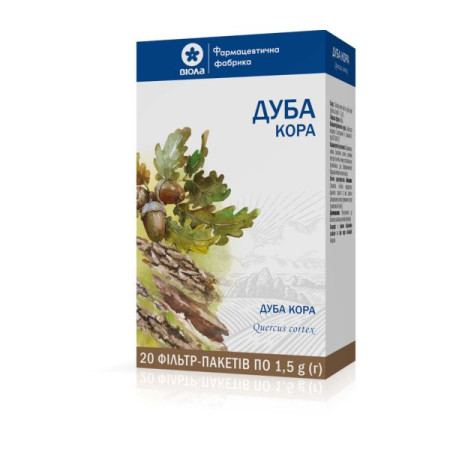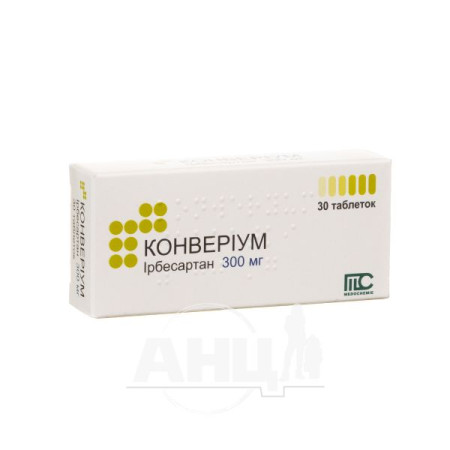Ornizol solution for infusion 5 mg/ml bottle 100 ml
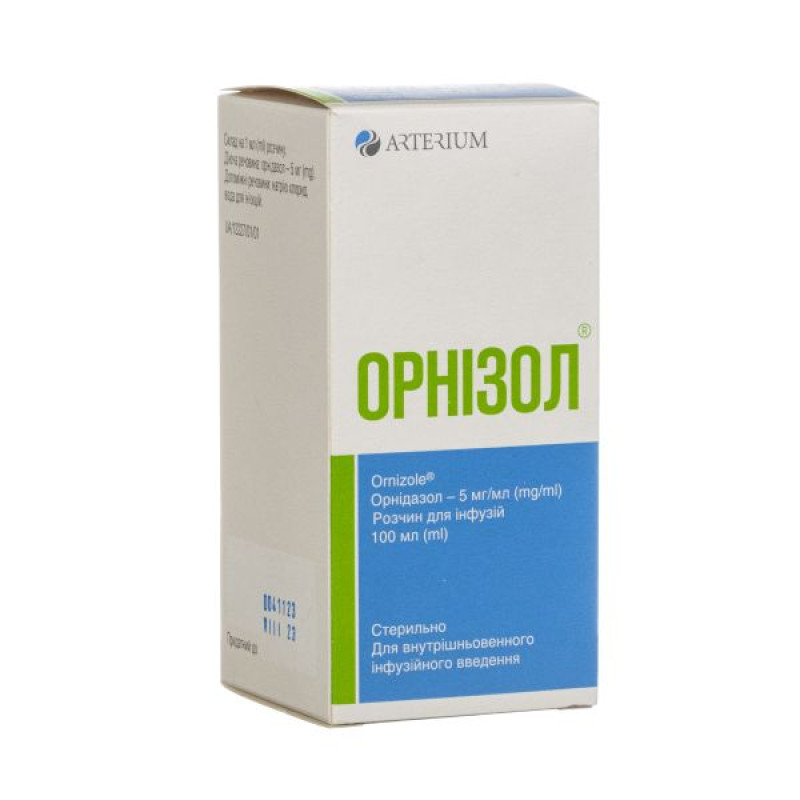
Parenteral administration of Ornizol is indicated in cases of acute and severe infection or when oral administration is not possible in the following diseases and conditions:
anaerobic systemic infections caused by ornidazole-sensitive microflora: septicemia, meningitis, peritonitis, postoperative wound infections, postpartum sepsis, septic abortion and endometritis; prevention of infections caused by anaerobic bacteria during surgical interventions (especially during operations on the colon and rectum), during gynecological operations; amoebic dysentery with severe course, all extraintestinal forms of amebiasis, giardiasis, liver abscess.Composition
Active ingredient: ornidazole;
1 ml of solution contains ornidazole - 5 mg;
Excipients: sodium chloride, water for injections.
Contraindication
Hypersensitivity to the components of the drug or to other nitroimidazole derivatives. Patients with CNS lesions, epilepsy, multiple sclerosis, chronic alcoholism. Circulatory disorders, pathological blood lesions or other hematological abnormalities.
Method of application
The dosage and duration of treatment are determined by the doctor depending on the nature of the disease and treatment regimens.
The drug should be administered intravenously over 15-30 minutes.
Application features
Pregnant women
Ornizol is contraindicated in the first trimester of pregnancy. In the second and third trimesters, it should be prescribed only according to absolute indications. If necessary, the use of the drug should be discontinued breastfeeding.
Children
Ornizol should not be prescribed to children weighing less than 6 kg.
Drivers
When using ornidazole, such manifestations as drowsiness, muscle rigidity, dizziness, tremor, convulsions, impaired coordination, temporary loss of consciousness are possible. The possibility of such manifestations should be taken into account by patients who drive vehicles or work with other mechanisms.
Overdose
Symptoms: nausea, vomiting, anorexia, possible exacerbation of symptoms of other adverse reactions.
Treatment: no specific antidote is known; in case of convulsions, diazepam should be used. Treatment is symptomatic.
Side effects
Blood and lymphatic system: bone marrow effects, moderate leukopenia, neutropenia. Immune system: hypersensitivity reactions, including anaphylactic shock, angioedema. Skin and subcutaneous tissue: skin rash, urticaria, skin hyperemia, itching. Nervous system: dizziness, drowsiness, headache, tremor, muscle rigidity, coordination disorders, ataxia, convulsions, temporary loss of consciousness, confusion, signs of sensory or mixed peripheral neuropathy, agitation. Gastrointestinal tract: taste disturbance, metallic taste in the mouth, dry mouth, coated tongue, nausea, vomiting, dyspepsia, feeling of heaviness and pain in the epigastric region. Liver and biliary tract: hepatotoxicity, changes in liver function tests. General disorders and administration site conditions: fever, chills, malaise, fatigue, shortness of breath, injection site conditions including pain, redness, burning sensation at the injection site. Other: dark urine, cardiovascular disorders including decreased blood pressure.Interaction
Unlike other nitroimidazole derivatives, ornidazole does not inhibit aldehyde dehydrogenase and is therefore compatible with alcohol. However, ornidazole enhances the effect of oral coumarin anticoagulants (warfarin), which requires appropriate dose adjustment.
Ornidazole prolongs the muscle relaxant effect of vancuronium.
The combined use of phenobarbital and other enzyme inducers reduces the circulation period of ornidazole in the blood serum, while enzyme inhibitors (e.g. cimetidine) increase it.
Storage conditions
Store in the original packaging at a temperature not exceeding 25 °C.
Keep out of reach of children.
Shelf life - 2 years.
There are no reviews for this product.
There are no reviews for this product, be the first to leave your review.
No questions about this product, be the first and ask your question.






